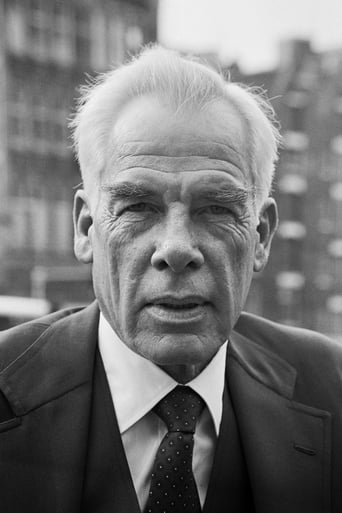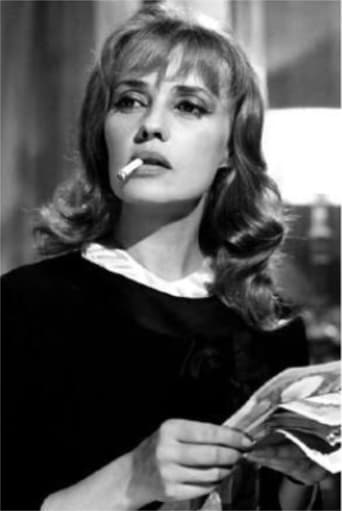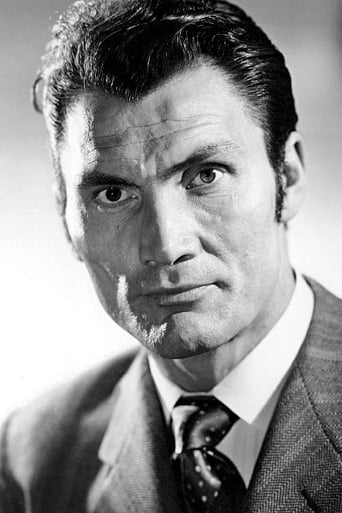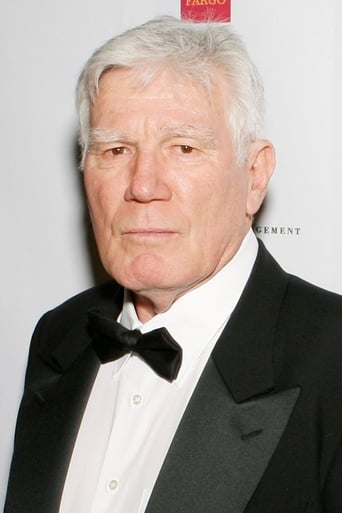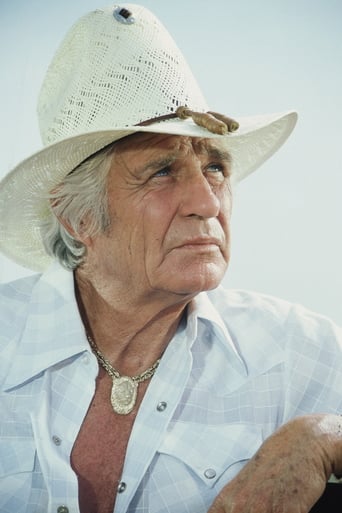rodrig58
Jeanne Moreau more beautiful than ever! Beautiful, talented and glamorous. But it will make you sad because... you'll see why... Lee Marvin and Jack Palance, two super-sacred monsters! Even doing nothing, by their mere presence in any movie, they filled the screen, in the best sense of the word, enlivening any production. They were unique! Jim Davis, Jock Ewing from "Dallas" is their boss. Nice melancholic music by John Barry. Great cinematography by David M. Walsh. There are not too many guns, rifles and shots, it's another kind of western, a realistic one, a slice of life.
virek213
By the late 1960s, the Western film genre was less focused on the settling and exploration of the American West, and more on the expansion of civilization that led to its demise and that of a certain group of men who made the settling of the West possible and who refused to change. Sometimes that vision could be rendered in a quasi-operatic way, as it was by director Sergio Leone with ONCE UPON A TIME IN THE WEST; and of course, the death of the West was rendered with extremely violent ferocity by Sam Peckinpsh in THE WILD BUNCH. But there were other films that rendered it in more elegiac terms, such as BUTCH CASSIDY AND THE SUNDANCE KID, WILL PENNY, and a much less violent Peckinpah film, THE BALLAD OF CABLE HOGUE. Another film that showed the changing and dying of the Old West in those aforementioned elegiac terms was the 1970 western MONTE WALSH.Set during turn of the 20th century, and based on the novel by Jack Schaefer, whose novel "Shane" was the basis for the classic 1953 western of the same name, MONTE WALSH stars Lee Marvin in the title role of an aging cowboy who, along with his longtime friend (Jack Palance), has been spending the winter on a cattle drive But more and more, Marvin and Palance are seeing the landscape become divided by barbed wire fences and the coming of the railroad; and opportunities for steady and gainful employment are becoming few and far between. The two men get onto the payroll of a prominent rancher (Jim Davis), and they enjoy whatever they can of what remains of the old way of being cowboys and free-range drifters; but even they know that nobody stays a cowboy forever. Indeed, Palance has designs on being a hardware store owner and marrying a widow (Allyn Ann McLerie); while Marvin carries on a relationship with a French woman (Jeanne Moreau, in her U.S. film debut). Among the ranch hands that Marvin and Palance ride with is an impulsive wanna-be cowpoke (Mitchell Ryan, making his film debut), who is intent on breaking a wild stallion, and failing at every turn. But when Davis has to lay off some of his hands because the work is drying up quite rapidly, Ryan is one of those he lets go; pretty soon Ryan takes to a life of crime, something that Marvin himself can't abide. And then when David murders Palance in Palance's hardware store during an attempted robbery, Marvin, however reluctantly, has to go after his former fellow employee to basically avenge his best friend's death. By the end, he is finally unemployed and more content to ride out into obsolescence, a trait echoed when he refuses to become part of some Wild West troupe, telling the promoter "I ain't spittin' on my whole life".William Fraker, one of Hollywood's great cinematographers (he had done the cinematography on two classic 1968 films, ROSEMARY'S BABY and BULLITT), made his debut in the director's chair with this impressive end-of-an-era sagebrush saga, capturing the wide open landscapes of the West (shot on locations in southern Arizona), and illustrating as well as anyone how rough a life it had to have been for the people of that era. Up until the 1960s, Hollywood had largely glamorized or rather blindly celebrated the settling of the West as part of America's Manifest Destiny. But the historical truth of the matter was that it was a hard way to live, and only the strongest really survived for whatever time there was to them before what we know as "civilization" encroached on the landscape. Marvin and Palance, both of whom had been known for playing real heavies and villains, here are world-weary men of the saddle just trying to do what they can, and both are excellent in their roles. They try and settle down, but Palance doesn't live long enough to be able to do too much of that, and for Marvin it is too humiliating to do so, even with Moreau (and indeed, he does not). Marvin ends up alone and on his own in the melancholic coda.Featuring solid support from genre veterans like Matt Clark, Bo Hopkins, Charles Tyner, Michael Conrad, Richard Farnsworth, and Billy Green Bush, MONTE WALSH, though highly acclaimed and highly successful at the box office upon its release in October 1970, has largely been forgotten by most audiences who are not already fans of the Western genre, as indeed basically the entire genre itself has been in the 21st century. But it doesn't have to be like this, not when there is a rich storytelling tradition in the genre still to be mined. MONTE WALSH was proof of that, and remains a classic of the genre to this very day.
MartinHafer
"Monte Walsh" is a very slow, deliberate and meandering sort of film. It's really quite lovely but also a bit thin when it comes to plot.The film is set in the waning days of the old west. Jobs for cowhands are drying up and old timers like Monte (Lee Marvin) and his friend, Chet (Jack Palance) are living anachronisms. During the course of the film, not only is their way of life dying but all sorts of rotten things happen to the folks Monte loves and as they drop like flies, he's pretty much all alone.To heighten the effect of loneliness, the film has excellent melancholy music and is deliberately slow and brooding. It works but might annoy some viewers who want a lot of action. Well, until near the end there ain't any....so deal with it! Worth seeing despite being a bit depressing and slow.
Albert Mazeika
A Modern classic spearheaded by an intelligent script, excellent performances, beautiful photography and an outstanding score. Lee Marvin is at his rugged best in the title role with typical solid support from Jack Palance, who is excellent here cast against type. That this great western was finally released on DVD LONG after the REMAKE is just wrong. And I do not mean that as a slam against the Tom Selleck/TNT version which was a well done rehash that I also enjoyed. MONTE WALSH stands beside WILL PENNY as 2 pillars of the "vanishing cowboy" genre. It seamlessly morphs from action to pathos, poignant to laugh-out-loud funny. One of Lee Marvin's best roles.

